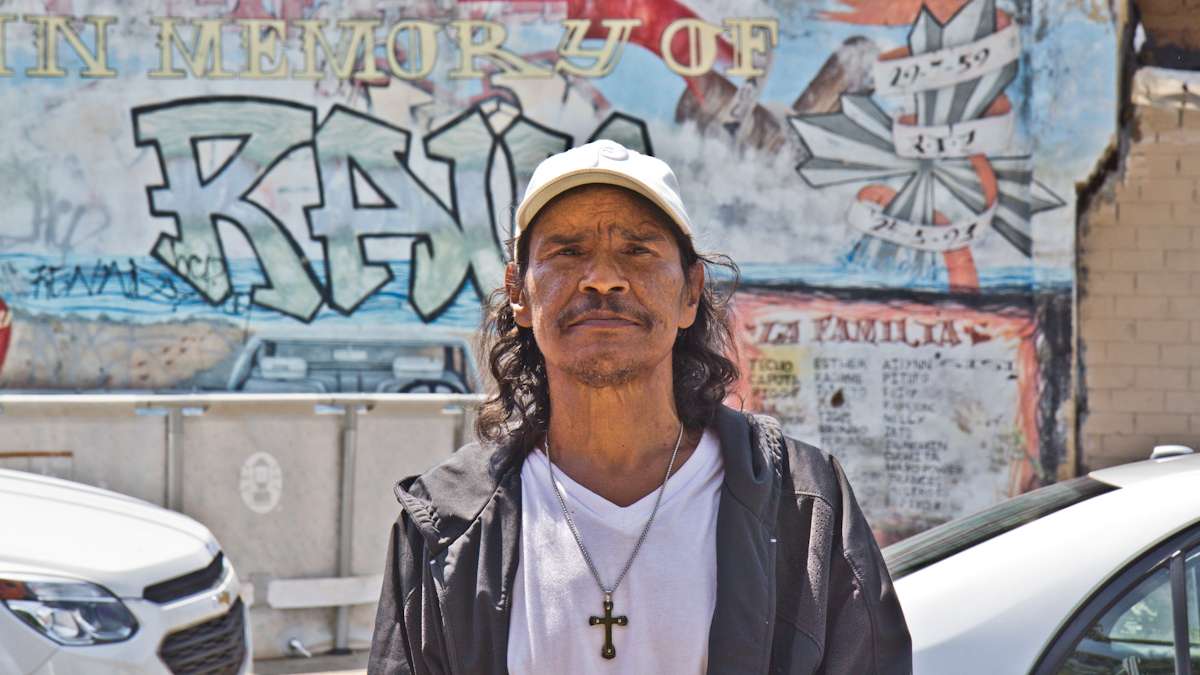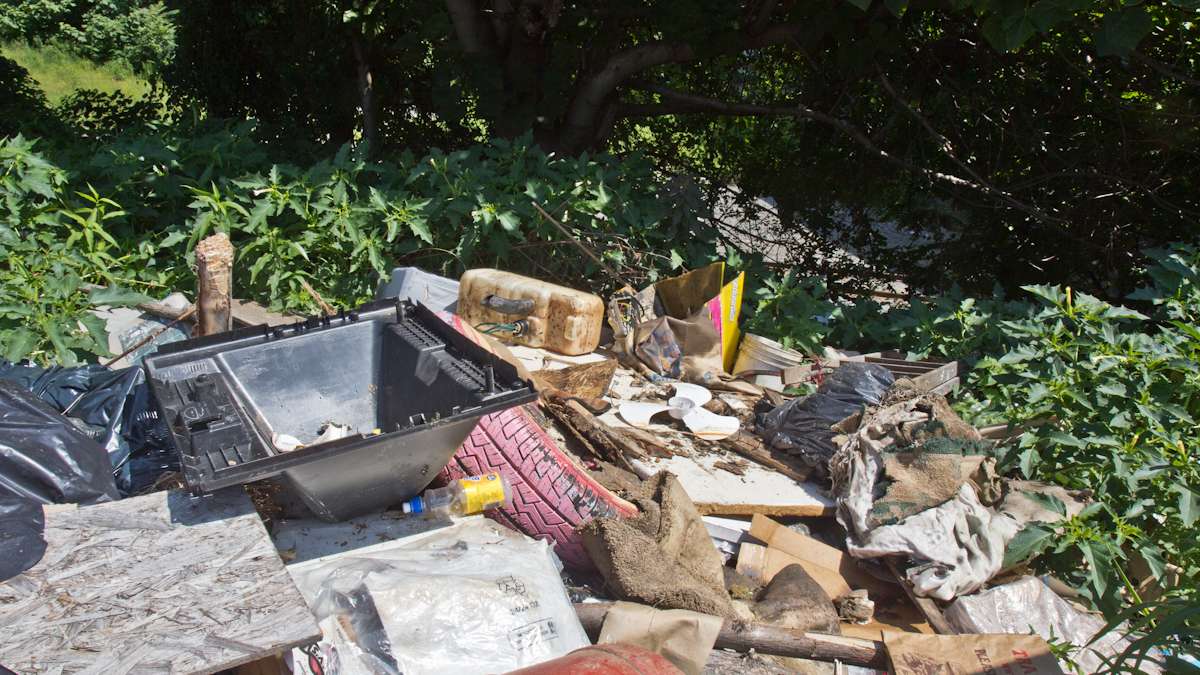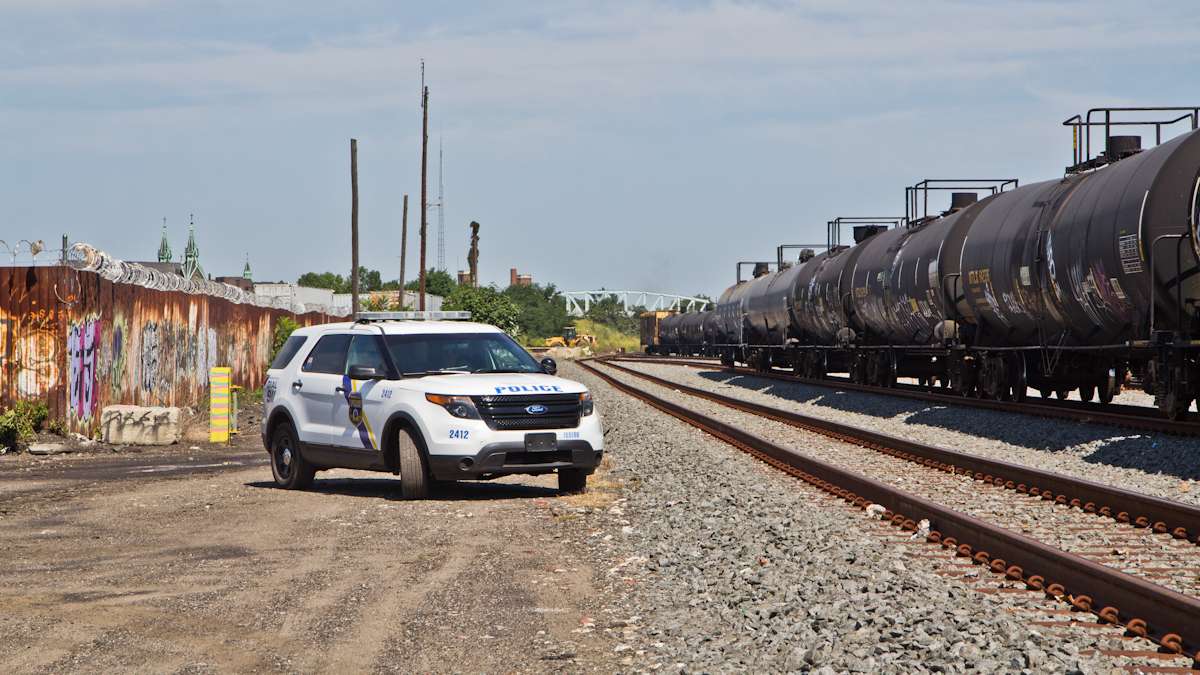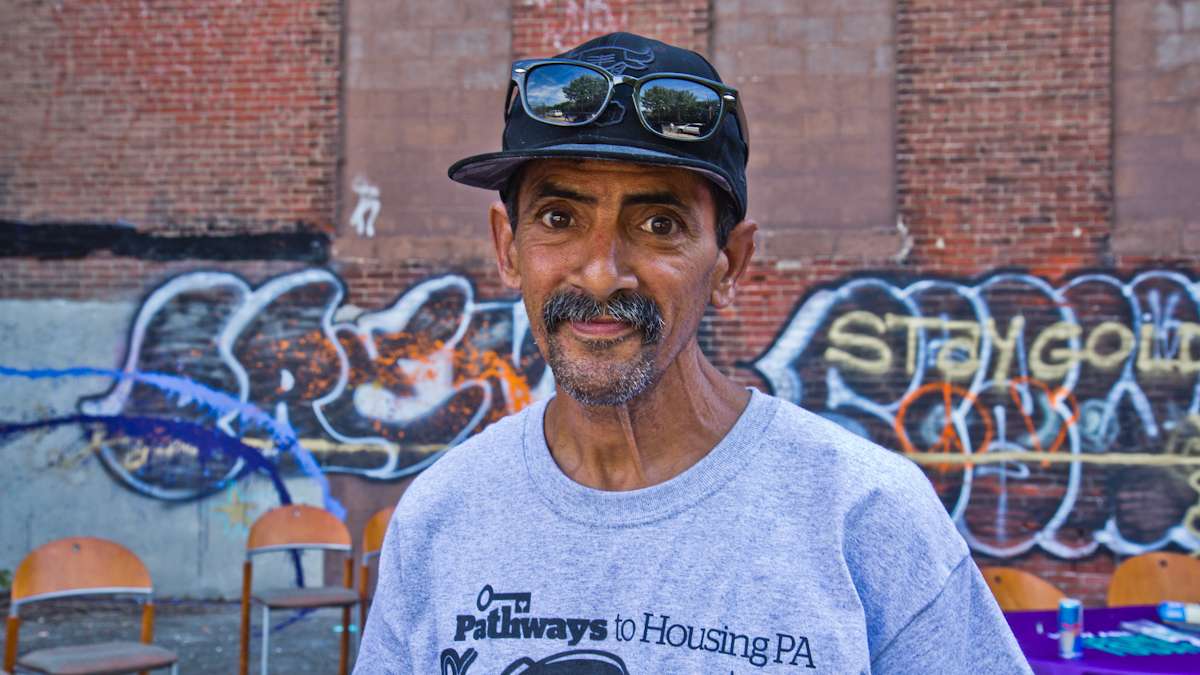Conrail begins clearing out heroin encampment as city reaches out to help those displaced
ListenConrail began work Monday to clean up a stretch of railroad tracks in the Kensington and Fairhill neighborhoods of Philadelphia that’s home to a vast encampment of heroin users.
While Conrail mobilized the heavy machinery it’s using to clean up tons of trash along the mile-long corridor, city outreach workers were offering help to those struggling with addiction who are being displaced by the cleanup. As many as 75 homeless heroin users were living there as of last week.
Israel Reyes stood outside a trailer set up to be an outreach station at A and Tusculum streets Monday morning, just across the street from the Conrail tracks where he woke up.
“That’s my residence,” said Reyes, 61. “I’ve been living down at the railroad tracks almost for two years and a half.”
Reyes said drug addiction brought him down there after he separated from his wife. He was accompanied at the outreach hub by a case worker from Pathways to Housing who has been working for two months to place him in supportive housing. Reyes took the organization’s help when he heard that Conrail would be shutting down access to the tracks.
Pathways to Housing doesn’t have an apartment for him yet, but Reyes said he would finally have a roof over his head again that evening. He was headed to a shelter at Prevention Point Philadelphia.
Once cleanup crews reach places along the railroad corridor where the heroin users camp, police officers will remove anyone who remains.
Droves of outreach workers wearing orange shirts were roving the area Monday morning to help get them into housing and treatment. Officials from the city and Conrail showed up at a second outreach hub at Second Street and Indiana Avenue to try to assure the community that they will be sticking around to help during — and long after — the cleanup.
“We want to lift up this problem,” said city managing director Michael DiBerardinis. “We want to treat folks who are addicted — we want to treat folks who have this heroin addiction.”
City officials said the treatment system can accommodate those in need, and they touted the resources they’re making available for people at the tracks.
The director of the Office of Homeless Services, Liz Hersh, said that the city was dedicating $750,000 to housing for people at the tracks and opening 32 new permanent housing slots.
David Jones, the commissioner of the Department of Behavioral Health and Intellectual disAbility Services, said 15 people signed up for treatment on Monday as cleanup work kicked off.
Still, many residents are worried that the cleanup could just push drug users around to other parts of the neighborhood, and some treatment advocates fear that the city’s system won’t be able to handle the increased demand for treatment that could be coming.
But Reyes said that the help from Prevention Point and Pathways to Housing makes him hopeful for the future.
“Everything is gonna get better,” Reyes said. “Hopefully, you know?”
WHYY is your source for fact-based, in-depth journalism and information. As a nonprofit organization, we rely on financial support from readers like you. Please give today.









